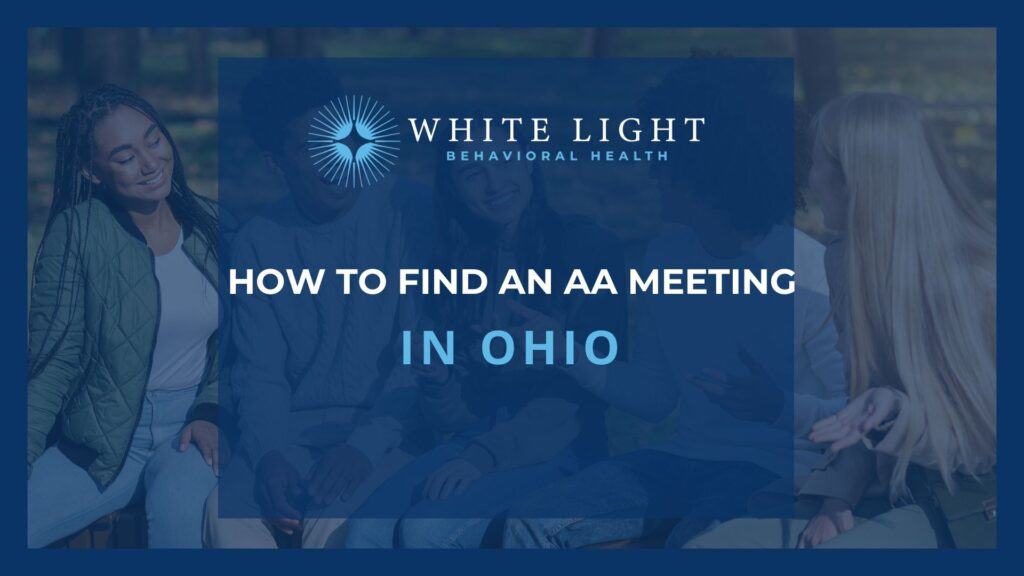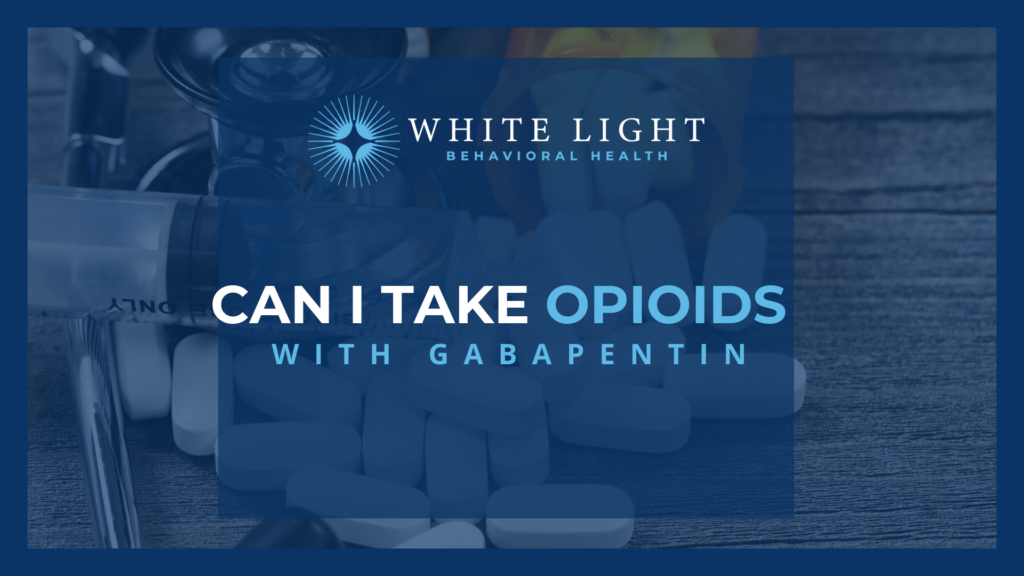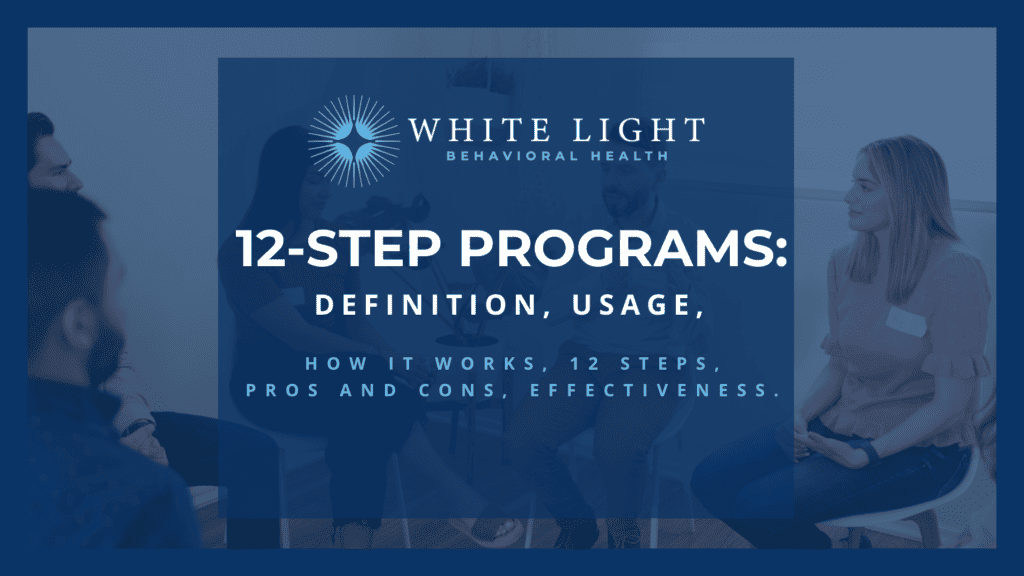Finding an AA Meeting in Ohio
If you find yourself consuming high amounts of alcohol to the point that you regularly become drunk or experience blackouts, it may be time to seek treatment in the form of AA meetings. These meetings can be administered during the initial stages of treatment or after you’ve completed an inpatient or outpatient treatment program from a treatment provider like White Light Behavioral Health. If you want to find an AA meeting near your location in Ohio, there are several steps you should take to make sure that the AA meeting you select is right for you and your situation.
What Is AA?
Alcoholics Anonymous involves meetings of people who are trying to resolve their drinking issues. Keep in mind that AA meetings don’t cost anything to attend. There are also no education or age requirements that you must meet if you want to participate. The main goal of AA is to help people who are experiencing alcohol use disorder reach sobriety and it’s been around for a while.
Signs of an Alcohol Use Disorder
If you or someone close to you has been drinking heavily, numerous signs indicate you may be experiencing an alcohol use disorder. Keep in mind that these disorders can be anywhere from mild to severe in how serious the symptoms are. According to a study by Mayo Clinic, the primary signs of an alcohol use disorder include:
- Not having control over how much you drink
- Spending a considerable amount of time drinking
- Having difficulties with reducing the amount of alcohol you consume
- Having a desire to drink alcohol
- Drinking alcohol regularly even though it’s causing social, relationship, or physical problems
- Not meeting work or school obligations
- Driving while intoxicated
- Being affected by such withdrawal symptoms as shaking, nausea, and sweating
When looking specifically at alcohol withdrawal, this issue can occur following consistent use of alcohol over an extended period. However, symptoms can start anywhere from a few hours after your last drink to several days later. According to a study by Richard Saitz published in 1998, the main signs of alcohol withdrawal include:
- Rapid heartbeat
- Sweating
- Tremors
- Hallucinations
- Vomiting and nausea
- Anxiety
- Restlessness
- Seizures
Why Is AA Important?
When a person seeks treatment for a drug use disorder or alcohol use disorder, group meetings and therapy sessions are a large part of the treatment process. Being among people who are going through the same issues that you are can create a more supportive environment, which is the same kind of atmosphere that’s available through Alcoholics Anonymous.
It’s important to understand that sobriety isn’t the opposite of a substance use disorder. Not drinking alcohol doesn’t mean that you’re no longer affected by a substance use disorder. Instead, it means that you are taking steps to lead a life that’s free from alcohol.
It’s believed that AA can provide a level of connection by speaking to people who you are comfortable with. The connections that are built during AA meetings are a key component of treatment for alcohol use disorder. During these meetings, it’s common for people to share their stories, which makes them feel like they’re part of the meeting and are contributing something of worth.
Reasons to Attend AA Meetings
There are many reasons why you should consider attending AA meetings if you believe that you’re currently consuming too much alcohol regularly. Combining inpatient or outpatient treatment with AA meetings may help you maintain abstinence on a long-term basis.
The National Institute on Alcohol Abuse and Alcoholism held a study in 2013 that showed that individuals who suffered from an alcohol use disorder and took part in treatment, as well as AA meetings, had a higher likelihood of not drinking alcohol in the three years following treatment. This study was conducted over eight years. At the end of the study, people who received both forms of treatment had a considerably higher rate of abstaining than people who didn’t.
According to this study, the effectiveness of Alcoholics Anonymous might not be the result of the process or content within the program. Instead, it could be the ability the program has to provide clients with long-term and completely free access to treatment that can be self-regulated. Some of the primary benefits associated with AA meetings include:
- People have no obligation to attend meetings
- AA meetings are 100% free
- Meetings can be attended at any AA location and as often as you prefer
- You’re able to maintain anonymity
- Questions are never too intrusive
- These meetings are available to everyone regardless of beliefs, race, or religion
- Anyone who attends gains access to a broad network of support
- Improved family connections
What to Expect From AA Meetings
Before you start searching for AA meetings to attend in Ohio, you might want to know more about what these meetings entail. These meetings are commonly held in community centers, churches, or similar buildings. Most meetings consist of a small number of people who chat, sit quietly, or drink coffee before the meeting begins. Following the COVID-19 pandemic, online AA meetings became more widespread as well, which allows you to attend the meeting while in your own home.
Once the meeting starts, attendees typically sit in chairs that are situated in a semi-circle. A group leader will be in charge of managing the meeting. It’s common for members of the AA group to recite passages that come directly from the Big Book, which includes the 12 promises and the 12 traditions.
Different types of AA meetings can be held. For instance, it’s possible for a Step Study meeting to occur, which involves a discussion of the 12 steps that Alcoholics Anonymous is based around. The most common type of AA meeting is an open meeting wherein members can speak about every facet of their recovery. The meeting only comes to a close when everyone who’s looking to speak about their experiences is finished. Most AA meetings last for approximately one hour.
Where to Go to Find AA Meetings in Ohio
There are several methods you can use when you want to find an AA meeting in Ohio. Likely the most straightforward method is to search for meetings on the Alcoholics Anonymous website, which gives you the ability to search for meetings in many Ohio cities. You can even set specific parameters for your search, the primary of which involves the distance to the AA meeting from where you live.
As touched upon previously, these meetings can be held in a variety of formats, which extend to in-person, group emails, chatrooms, online video conferencing, and phone conferencing. You can select the environment that you believe will suit your ongoing treatment needs. Virtual meetings may be ideal for people with physical disabilities, transportation problems, or busy schedules.
How to Choose the Right Meeting
While many tools at your disposal make it easier to find AA meetings in Ohio, you may want to do more research to find the AA meeting that’s right for you. This may only be possible by attending various meetings to see which one fits best. Don’t be discouraged if you attend a meeting that you don’t necessarily enjoy. There are several steps you can take to narrow your options.
Size of Meeting
First, consider the size of the AA meeting. Some people will be more comfortable in a setting that accommodates larger groups. If you don’t want an intimate setting as you attend AA, a larger group may be preferable. In many cases, the size of a group depends on where you live and when you attend the meeting. An AA meeting in a city will likely be larger than one held in a rural location.
Possibility for Growth
You should also consider the possibility of growth. Do you find that the people in your group are encouraged about their progress and engaged with the meetings? If not, the AA meeting you’re attending might not be the right solution for you. As mentioned previously, being in a group environment with people who are also doing their best to avoid drinking alcohol can create a base of support. If you’re attending a meeting with people who aren’t interested in growing, this base of support may not exist.
Group Environment
When you’re searching for the best group environment that will provide you with a more positive experience, look for one that regularly offers advice and has numerous people willingly speak during the meetings. You can discover if the people in your group are motivated to continue attending AA meetings and leading a sober lifestyle during the pre-meeting gathering. You should be able to determine if you’d like to share your ongoing recovery with these individuals.
Educational Tools
According to Alcoholics Anonymous’s official website, it’s estimated that there are more than 123,000 AA meetings that are held throughout the world, many of which are in the U.S. Each meeting is unique and will include an array of different discussions. Even though these meetings can differ substantially, certain educational tools should be available in every meeting.
For one, the AA Big Book should be provided to attendees. Other educational materials that revolve around staying sober may also be accessed during a meeting. If you feel as though you’re not learning anything when attending AA meetings, it might be time to stop by a different meeting.
AA meetings are often used by people who have completed an outpatient or inpatient treatment program and are looking to continue maintaining their sober lifestyle following the initial treatment. Finding an AA meeting in Ohio is as easy as searching for one via the Alcoholics Anonymous website. If you are struggling with an addiction to alcohol and need help finding resources to aid in your recovery, the team at White Light Behavioral Health in Columbus, Ohio is available to help. We can discuss your treatment and recovery options and connect you to resources in your community.
Can I attend an AA meeting if I’m not religious?
Yes, absolutely. AA meetings welcome individuals from all walks of life, regardless of their religious beliefs or affiliations. The only requirement for membership in AA is a desire to stop drinking. While AA does incorporate spiritual elements into its program, it is not affiliated with any particular religion, and members are free to interpret the spiritual aspects in a way that aligns with their own beliefs or philosophies.
How do I know if AA is right for me?
Deciding if AA is right for you is a personal decision that depends on various factors, including your willingness to stop drinking, your comfort level with group support settings, and your openness to the spiritual aspects of the program. You may find AA beneficial if you are struggling with alcohol addiction and seeking support from others who have experienced similar challenges.
What should I expect at my first AA meeting?
Attending your first AA meeting can feel daunting, but rest assured that you will be welcomed with open arms. Meetings typically begin with introductions and readings from AA literature, followed by members sharing their experiences, strengths, and hopes related to alcohol recovery. You are not required to speak if you’re uncomfortable; you can simply listen and observe.
What role does Step 12 play in the recovery process of AA?
Step 12 of Alcoholics Anonymous (AA) is a crucial aspect of the recovery journey. It involves carrying the message of recovery to others who still suffer from alcohol addiction and practicing the principles of AA in all areas of life. Engaging in service work, sponsoring newcomers, and sharing one’s experience, strength, and hope are central to Step 12.
How can I support a loved one attending AA meetings?
Supporting a loved one attending AA meetings involves understanding and respecting their journey to recovery. Encourage them to attend meetings regularly and offer to accompany them if they feel nervous or hesitant. Listen non-judgmentally when they share their experiences from meetings and offer encouragement and praise for their efforts.
Are there specialized AA meetings for certain demographics?
Yes, there are specialized AA meetings tailored to specific demographics or interests within the recovery community. For example, there may be meetings specifically for women, men, LGBTQ+ individuals, young people, or professionals. Additionally, some meetings focus on topics like dual diagnosis (addressing both addiction and mental health issues), relapse prevention, or particular spiritual traditions.
How do I find AA meetings in languages other than English?
Finding AA meetings conducted in languages other than English can be done through various channels. You can check with local AA intergroup or central offices in Ohio to inquire about meetings conducted in specific languages. Additionally, online meeting directories and platforms may offer filters for language preferences, allowing you to find meetings conducted in languages other than English.
How can I support someone hesitant to attend AA meetings?
Supporting someone hesitant to attend AA meetings involves understanding their concerns and offering reassurance without pressure. Listen to their reasons for hesitancy without judgment and validate their feelings. Offer to accompany them to a meeting or explore alternative support options together, such as counseling or peer support groups.
What is the success rate of AA?
The success rate of AA is challenging to quantify definitively, as it varies among individuals and depends on various factors such as the level of commitment to the program, the presence of co-occurring disorders, and external support systems. While some studies suggest that participation in AA can be beneficial for many individuals struggling with alcohol addiction, success rates can be subjective and difficult to measure in concrete terms.
How long should I expect to participate in a 12-step program?
The duration of participation in a 12-step program like AA varies from person to person and depends on individual progress and goals. Some individuals may find long-term involvement in AA beneficial for maintaining sobriety and ongoing support, while others may transition to other forms of support or continue their recovery journey independently.

Share This Post



